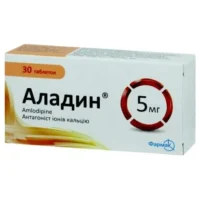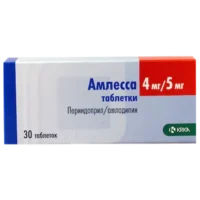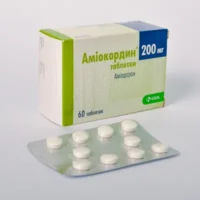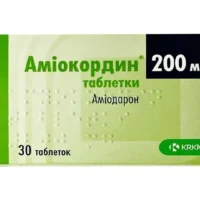Description
Rami Sandoz (Ramipril) Tablets 2.5 mg. №30
Ingredients
- Active ingredient: Ramipril 2.5 mg
- Other ingredients: lactose monohydrate, pregelatinized starch, croscarmellose sodium, and magnesium stearate
Dosage
Dosage: The usual starting dose is 2.5 mg once daily. Dosage may be adjusted according to the individual patient’s response.
Indications
Indications: Rami Sandoz is indicated for the treatment of hypertension, heart failure post-myocardial infarction, and diabetic nephropathy.
Contraindications
Contraindications: Do not use Rami Sandoz if you are allergic to ramipril or any other ACE inhibitor. Avoid use during pregnancy as it can cause harm to the fetus.
Directions
Directions: Take Rami Sandoz exactly as prescribed by your healthcare provider. Swallow the tablet whole with a glass of water. It can be taken with or without food.
Scientific Evidence
Scientific Evidence: Several studies have demonstrated the efficacy of ramipril in reducing cardiovascular events and mortality in patients with cardiovascular risk factors. A study by Yusuf et al. (2000) showed a significant reduction in the risk of myocardial infarction, stroke, and cardiovascular death with ramipril therapy.
Additional Information
- Additional Information: It is important to monitor blood pressure regularly while taking Rami Sandoz. Inform your doctor of any side effects such as dizziness, cough, or swelling of the face, lips, or throat.
- Pharmacological Effects: Ramipril is an ACE inhibitor that works by blocking the conversion of angiotensin I to angiotensin II, a potent vasoconstrictor. By inhibiting this process, ramipril helps dilate blood vessels, reduce blood pressure, and improve cardiac function.
- Clinical Trials: Clinical trials have shown that ramipril is effective in reducing the risk of cardiovascular events in patients with high blood pressure, heart failure, and diabetes. The HOPE study demonstrated a 22% reduction in the composite endpoint of cardiovascular death, myocardial infarction, and stroke with ramipril therapy compared to placebo.





